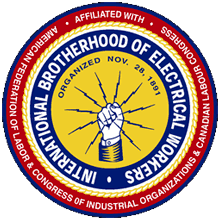June 22, 2016
By Steven Wishnia
New York, N.Y.—New York City’s school-bus drivers, attendants, and mechanics have won a big step toward getting their job security back.
Early in the morning of June 19, just before its session ended, the state legislature voted to enable New York City to include “employee protection provisions” in its contracts for school-bus services. Those provisions, eliminated by then-mayor Michael Bloomberg in 2013, require city bus contractors to hire workers in order of seniority, at the same wages and benefits they had in their most recent job. A one-month strike by Amalgamated Transit Union Local 1181 failed to persuade him to negotiate.
“This bill is about hardworking men and women who dedicate their lives to the safety of children,” Local 1181 President Michael Cordiello told LaborPress June 22. The union, which represents between 8,000 and 9,000 school-bus workers, has been pushing for legislation to ensure the “EPP” protections since before the 2013 strike, “to make sure that the most experienced drivers and matrons were serving the children.” If Gov. Andrew Cuomo signs it, it will give a “tremendous lift” to the about 2,000 members who don’t have those protections, he said.
Cuomo’s office did not say whether he intends to sign the measure. Spokesperson Rich Azzopardi said June 22 that it was one of 554 bills “under review by Counsel’s office.”
“We’ve had a six-run inning,” says Cordiello, “but the game’s not over until the last pitch is thrown in the ninth inning.” He urged members to “stick together till we see it completely through.”
The bill does not let the city reopen current bus contracts to put the protections back in, says a spokesperson for Mayor Bill de Blasio’s office, so it can only include them in future bid requests. “The Administration pushed for these provisions, as they’re in line with our overall mission to ensure workers have good jobs and wages,” she says. “We’re currently in the process of determining next steps to ensure our hardworking bus drivers and matrons earn enough to support a family.”
Assemblymember Daniel O’Donnell (D-Manhattan), the bill’s sponsor, contended that restoring the EPP protections would prevent bus-service disruptions while “facilitating the retention of an experienced workforce” and protecting workers from “drastic wage and benefit reductions.” A spokesperson for Brooklyn Republican Martin Golden, the state Senate sponsor, said it had been modified enough to enable the school-bus industry to remain stable. The final votes were 127-15 in the Assembly and 44-18 in the Senate.
The protections had been in place since the late 1970s, but in January 2013, Bloomberg announced that he would not include them in new contracts with the private bus companies that take pupils on field trips and transport disabled children to school and back. More than 8,000 Local 1181 members, fearing their pay would be cut to minimum wage, went on strike.
“This is our livelihood,” Mario Jean, then a shop steward, told the BQ Brew news Web site while on a cold picket line behind City Hall during the walkout. “It allows us to move from Company A to Company B and keep our benefits.”
Bloomberg celebrated the union’s decision to end the strike by declaring that “in the city’s entire history, the special interests have never had less power than they do today.” At the time, bus drivers started at $14 an hour and reached $29.63 after six years on the job, while attendants started at $11 and maxed out at $15.93.
“When Mayor Bloomberg cut the Employee Protection Provision, the livelihoods of our city’s school bus workers changed overnight,” Demos P. Demopoulos, secretary-treasurer of Teamsters Local 553, the other union representing school-bus workers, said in a statement June 20. “People who had dedicated their lives to the safe transport of our schoolchildren were thrust into a race to the bottom that made everyone a loser.”
The ATU and the Teamsters have both pushed for legislation to restore the protections since then. The Assembly passed a bill last year, but it died when the Senate took no action.
The Bloomberg administration claimed that including employee protection provisions in new contracts would not be legal, because it would restrain trade. “This legislation is making it very clear that it is legal,” a Teamsters spokesperson told LaborPress.



